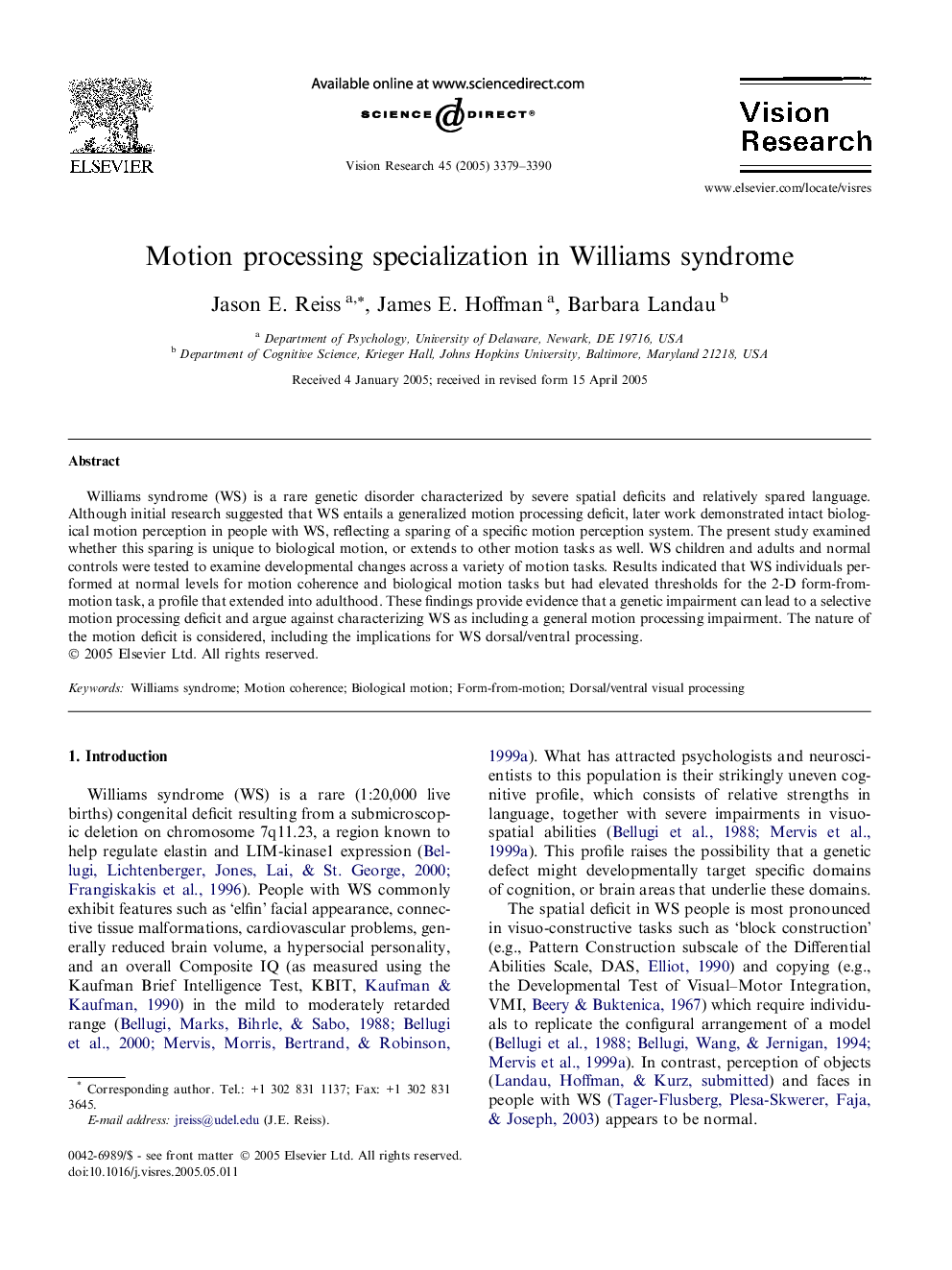| Article ID | Journal | Published Year | Pages | File Type |
|---|---|---|---|---|
| 4035469 | Vision Research | 2005 | 12 Pages |
Williams syndrome (WS) is a rare genetic disorder characterized by severe spatial deficits and relatively spared language. Although initial research suggested that WS entails a generalized motion processing deficit, later work demonstrated intact biological motion perception in people with WS, reflecting a sparing of a specific motion perception system. The present study examined whether this sparing is unique to biological motion, or extends to other motion tasks as well. WS children and adults and normal controls were tested to examine developmental changes across a variety of motion tasks. Results indicated that WS individuals performed at normal levels for motion coherence and biological motion tasks but had elevated thresholds for the 2-D form-from-motion task, a profile that extended into adulthood. These findings provide evidence that a genetic impairment can lead to a selective motion processing deficit and argue against characterizing WS as including a general motion processing impairment. The nature of the motion deficit is considered, including the implications for WS dorsal/ventral processing.
